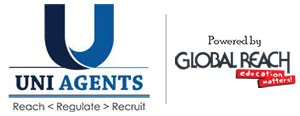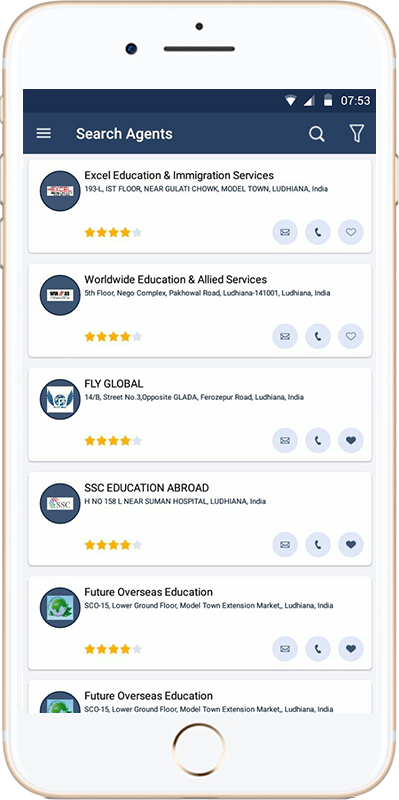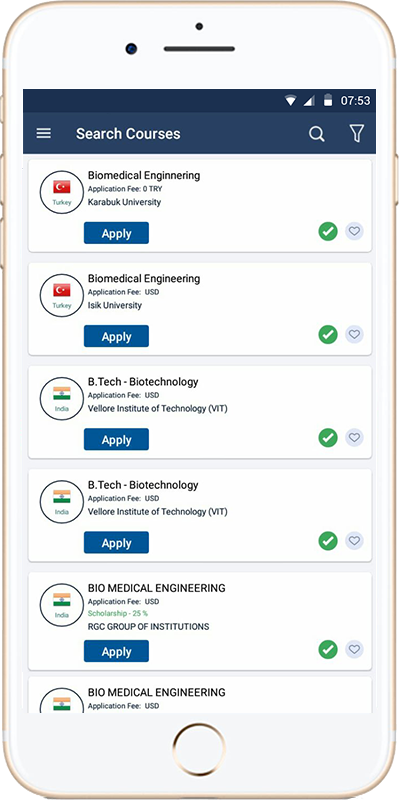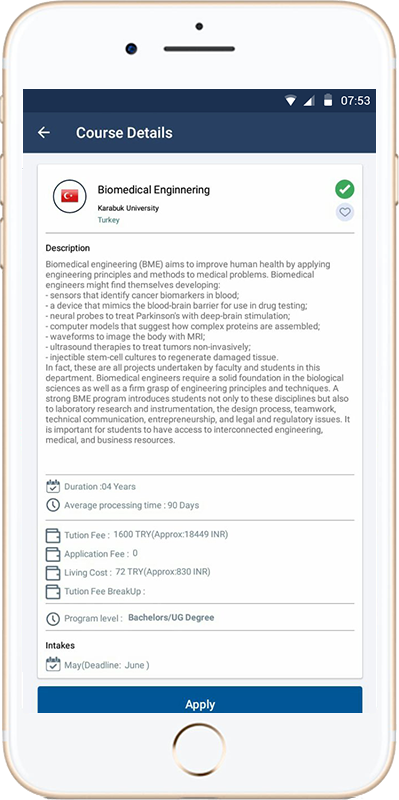Who we are
UTS is a public university of technology defined by our support for the economic, social and cultural prosperity of our communities. We are measured by the success of our students, staff and partners and committed to research, innovation and the dissemination of knowledge of public value. We are, and always will be, an inclusive university.
UTS has a culturally diverse campus life and vibrant international exchange study and research programs that prepare graduates for the workplaces of today and the future. Our campus is in the heart of Sydney's creative and digital precinct and alongside Sydney's central business district. Continuing a 10-year period of major development, the ongoing transformation of the UTS campus will ensure we continue to maintain and develop a purpose- and sustainably-built campus to support innovation in education and research.
Our UTS 2027 strategy outlines our vision to be “a leading public university of technology recognised for our global impact” . Our purpose is to advance knowledge and learning through research-inspired teaching, research with impact and partnerships with industry, the professions and community. UTS is part of the Australian Technology Network of universities: a group of prominent universities committed to working with industry and government to deliver practical and professional courses.
With a total enrolment of over 44,000 students, UTS is one of the largest universities in Australia.
What we do
UTS offers over 130 undergraduate and 210 postgraduate courses across traditional and emerging disciplines such as architecture, built environment, business, communication, design, education, engineering, information technology, international studies, law, midwifery, nursing, pharmacy and science.
In line with the UTS model of global practice-oriented learning, many of our students undertake professional practice during their degree. As part of their degree program, students also have the opportunity to study at one of more than 185 universities in about 40 countries with which UTS has exchange agreements.
Our world leading research centres span a range of disciplines, including physical, biological and engineering sciences, and contemporary fields such as design, nanotechnology and sustainability. Our researchers provide practical and relevant solutions to issues of national and international importance and equip graduates with the latest discipline specific skills and practices.
We also maintain strong relationships with the local community, industry, business and the professions through a wide range of partnerships, projects and events.
As a public purpose institution, UTS is committed to supporting positive social change within and beyond our campus. This commitment is reflected by a diverse set of institution wide social justice initiatives that have only expanded in scope and impact since UTS was established. Student-based programs, focused research and innovative teaching approaches aim to create a more just and equitable world.
Our history
On 26 January 1988 — with the commencement of the University of Technology, Sydney, Act — the former New South Wales Institute of Technology became the University of Technology, Sydney.
The New South Wales Institute of Technology was established in 1964. The School of Design of the former Sydney College of the Arts was incorporated into the Institute on 25 January 1988.
On 1 January 1990, the Institute of Technical and Adult Teacher Education and the Kuring-gai College of Advanced Education were amalgamated with the existing University of Technology, Sydney to form the current UTS. On 1 August 2015, the comma was removed from the University’s title to become the current University of Technology Sydney.
Why choose UTS?
Join more than 1000 study abroad and exchange students who choose to study at UTS each year.
Adventure in one of the world's best cities
Sydney is the 8th best student city (QS) and the 11th most liveable city (The Economist) in the world. When class is finished, explore our famous harbour, sandy beaches, national parks or bustling downtown. Our campus is right next to Central Station, so hop on a train or bus to get anywhere in Sydney – and beyond.
Learning for the future
At UTS, every degree is practical and relevant to the challenges of tomorrow.
More than 150 industry partners shape our course content. That means you’ll gain the skills you need to succeed, wherever your future takes you.
Study in the heart of Sydney
UTS is Sydney’s city university. We’re minutes away from the central business district and central transport hub. When you study at UTS, you study on a campus that is integrated into the city itself.
Sydney is one of the top 10 student cities in the world¹. Here, you’ll find stunning beaches one bus trip away from campus. You’ll discover coastal walking trails that pass straight through the city. You’ll expand your mind with film festivals, art festivals and music festivals all year round. And you’ll eat your way around the world without getting on a single flight!
Learn from thought leaders
UTS is the #1 young university (link to ranking page) in Australia for four consecutive years – what does it mean? You’ll be learning from leaders in a vibrant, nurturing and innovative environment. Our teaching team comprised of maths and science thought leaders who are actively advancing their fields of expertise. They’re researchers, practitioners and industry experts – and they’re committed to helping you achieve your goals. When you choose UTS, you’ll be choosing a university that takes a fresh approach to the study and research of science and mathematics.
Get real (world experience)
Our courses are purpose built, globally relevant, practice oriented and research focused. Student experience is the focus. We’ll push you beyond the safety net of the classroom. Dive into hands-on projects or research that’ll build your technical expertise and pursue internship in a range of scientific, business and government organisations. Or use your electives to pursue different disciplines outside of science or maths to broaden your employability. Or use your degree as the catalyst for a life-changing overseas exchange adventure.
On the cusp of greatness
Our research is among the best there is, and we’ve even got the scores to prove it! In the last ‘Excellence in Research for Australia’ (ERA) report, we were ranked ‘at world standard’ – or above – in every single one of our research disciplines. In fact, our work in chemical sciences, material chemistry, environmental sciences and genetics were given the highest possible score - ‘well above world standard’ putting us on par with some leading institutions in the world.
Australia’s #1 young university
#15 in the world for positive impact
Times Higher Education Impact Ranking 2023
Top 100 in the world for graduate employability
QS Employability Ranking 2022
The most prestigious international rankings agencies have ranked and rated UTS highly in recent years. Here are some of our recent achievements:
- Ranked 14th in the world and 4th in Australia for overall contributions to Sustainable Development (Times Higher Education Impact Ranking 2023).
- Ranked 43rd in the world and 8th in Australia for Sustainability (QS Sustainability Rankings 2024)
- Highest-performing university in Australia under 50 years old (THE Young University Rankings 2023).
- Ranked in the Top 100 universities in the world (QS World University Rankings 2024) and the Top 150 universities in the world (Times Higher Education World University Rankings 2024).
- 9th highest performing university in the world under 50 years old (Times Higher Education Young University Rankings 2023).
- Clarivate Analytics has named nine UTS academics on its list of Highly Cited Researchers for 2023, and two of them in two categories (Highly Cited Researchers 2023).
- 100 per cent of UTS research in the broad Fields of Research (FOR) at world standard or above in the 2018 Excellence in Research for Australia (ERA) evaluation.
- Almost 80% of UTS’s assessed research areas rated as having a “high” impact beyond academia (the highest proportion in the country), in the 2018 Engagement and Impact Assessment (EIA).
- 5+ stars for excellence across all 8 categories (QS Stars Rating 2021–2024).
ERA - Excellence in Research for Australia
The Australian Government benchmarked 100 per cent of UTS research in the broad Fields of Research (FOR) at world standard or above in the 2018 Excellence in Research for Australia (ERA) evaluation. The results demonstrate an increase in the quality of research at UTS, with more than 70 per cent of our research classified as ‘above world standard’ (ERA ranking 4) or ‘well above world standard’ (ERA ranking 5).
UTS has also increased the number of areas classified as ‘well above world standard’ (the highest assessment), including the following: physical sciences, environmental sciences, agricultural and veterinary sciences, artificial intelligence and image processing, econometrics, macromolecular and materials chemistry, physical chemistry, genetics, biomedical engineering, human movement and sports science, and nursing.
This is the fourth round of ERA, which the Australian Research Council administers to provide an assessment of research excellence within the Australian university sector. The data informs the government’s strategic research investment decision-making process.
EIA - Engagement and Impact Assessment
In the inaugural Engagement and Impact Assessment (EIA), the Australian Government rated almost 80% of UTS’s assessed research areas as having a “high” impact beyond academia, the highest proportion in the country.
In this assessment, research impact was considered in terms of non-academic contributions of research, such as those to the economy, the environment, culture, or society.
Areas in which UTS rated “high” in all three areas (Engagement, Impact, and Approach to Impact) were Biological Sciences, Engineering, Medical and Health Sciences, Built Environment and Design, and Law and Legal Studies.
















